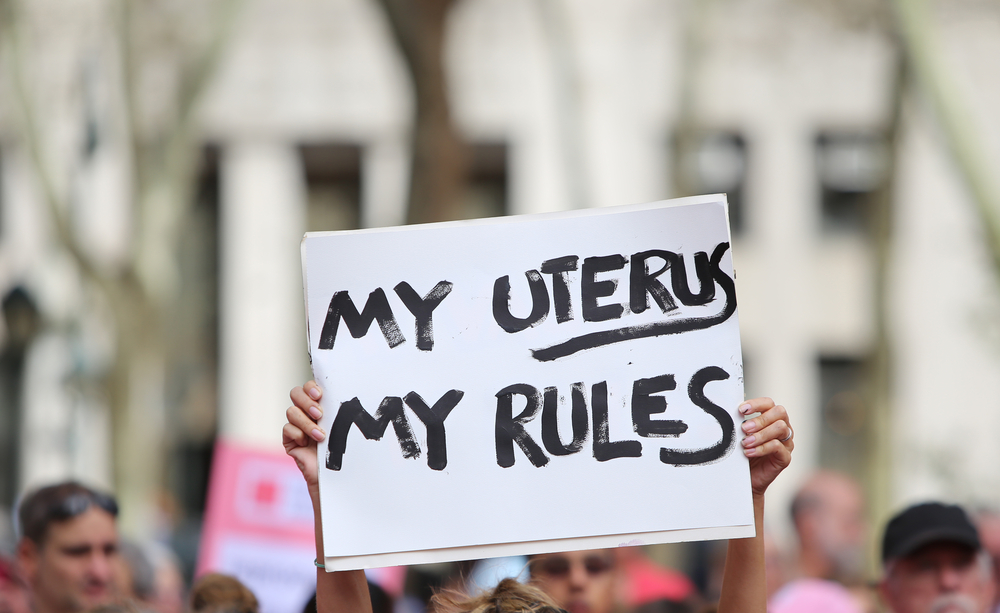Ohio’s New 20-week Abortion Ban and How it Stacks Up Against the Heartbeat Bill

Ohio’s New 20-week Abortion Ban and How it Stacks Up Against the Heartbeat Bill
by Jennifer Bryant
Deciding if or when to become a mother is one of the most personal choices a woman can make. Now, the state of Ohio is getting more of a say in that decision.
Two bills that threaten to severely restrict reproductive rights for women in Ohio were up for consideration.Both bills were approved by Ohio legislators last week. One has been officially vetoed; the other is now law.
House Bill 493, also known as the “Heartbeat Bill,” would have prohibited abortion in Ohio as early as six weeks’ gestation, when many women don’t even know they’re pregnant yet. This bill also makes no exception for cases of rape or incest. (Seriously.) If it had been signed into law, the Heartbeat Bill would’ve become the harshest abortion regulation in the country.
Senate Bill 127, the newly signed abortion law, will eliminate the viability test for abortions past 20 weeks. This means that even if a doctor determines that a fetus has no chance of surviving outside of the womb, terminating the pregnancy will not be an option. This bill is being pushed in spite of the fact that the period between 20-24 weeks’ gestation is often when severe fetal abnormalities are first detectable, and also when some dangerous health issues for pregnant women surface.
Critics of the Heartbeat Bill & 20-week ban see these as thinly veiled attempts to make abortions so hard to get, they’ll be practically unobtainable.
In an interview on Saturday, NARAL Pro-Choice Ohio executive director Kellie Copeland stated, “There’s a danger that the Heartbeat Bill could outlaw abortion from coast to coast.” She explained that although this regulation is unconstitutional under Roe v. Wade, the timing is strategic. If the bill becomes law and is challenged, the current Supreme Court would likely overturn it, as they have done with similar bills in other states. However, once in office, Donald Trump could stack the court with justices who would uphold the Heartbeat Bill, setting a dangerous precedent. Says Copeland, “This legislation would take us back to a time when abortion was illegal for all intents and purposes.”
Copeland continues, “We are already seeing very troubling trends which have the makings of a reproductive health crisis.” Second trimester abortions are on the rise due to accessibility issues. 91% of Ohio counties currently have no abortion provider. Although Ohio has world-class medical facilities and is a destination state for many types of healthcare, Ohio women find themselves having to flee the state for abortions. While this is obviously bad news for women, physicians may be impacted too: OB/GYNs who are frustrated at not being able to provide necessary care for women whose health is in danger may decide to practice medicine elsewhere.”
And the women who don’t have the means to travel? They’re “forced to continue their pregnancies – sometimes at risk to health and life.”
Or they take matters into their own hands – and the consequences can be deadly. Copeland states that she has spoken with ER doctors who have treated women after botched self-abortions; it’s like something out of a different time. “There is a constitutional right to access abortion, but when people can’t get the healthcare they need, abortion goes from being safe to not safe.”
This also applies to the newly approved 20-week ban. Many women learn crucial information about their fetus in the 20-24 week period, including whether abnormalities would occur during birth that may threaten the life of the child or the mother. Eliminating the viability test after 20 weeks effectively reduces access to this health information, endangering the lives of women who simply won’t know.
Contrary to what some anti-choice advocates would like people to believe, abortions aren’t sought only by the irresponsible or the young. Birth control fails; sexual assaults happen; and sometimes, even wanted pregnancies can end in terminations, usually due to severe fetal abnormalities or the health of the woman. The bills fail to account for these realities. Instead, they take a very personal decision, one that should be between a patient and her doctor, and place it in the hands of the government. If either bill is passed into law, it will set a dangerous precedent for the entire country. It’s not a good look for our state, and the blatant disregard for women’s well-being speaks volumes about the true agenda behind the bills.
According to Copeland, if HB 493 and SB 127 become law, Ohio women will become “the first to really be affected by the sea change of the Trump presidency.” However, it’s not too late to fight back. Ohio residents who oppose these dangerous restrictions can contact Gov. Kasich via phone (614-466-3555) or send an email through his website to express their thoughts. Copeland also suggests keeping up with developments on the legislation through social media by following #thepeoplesveto and #stopthebans. “Ohioans are watching. This is not consistent with our values, and we will stand up and fight.”
After all, as Copeland says, “A right you cannot access is not a right at all.”
The new legislation will go into effect March 30th, 2017.
BROUGHT TO YOU BY





